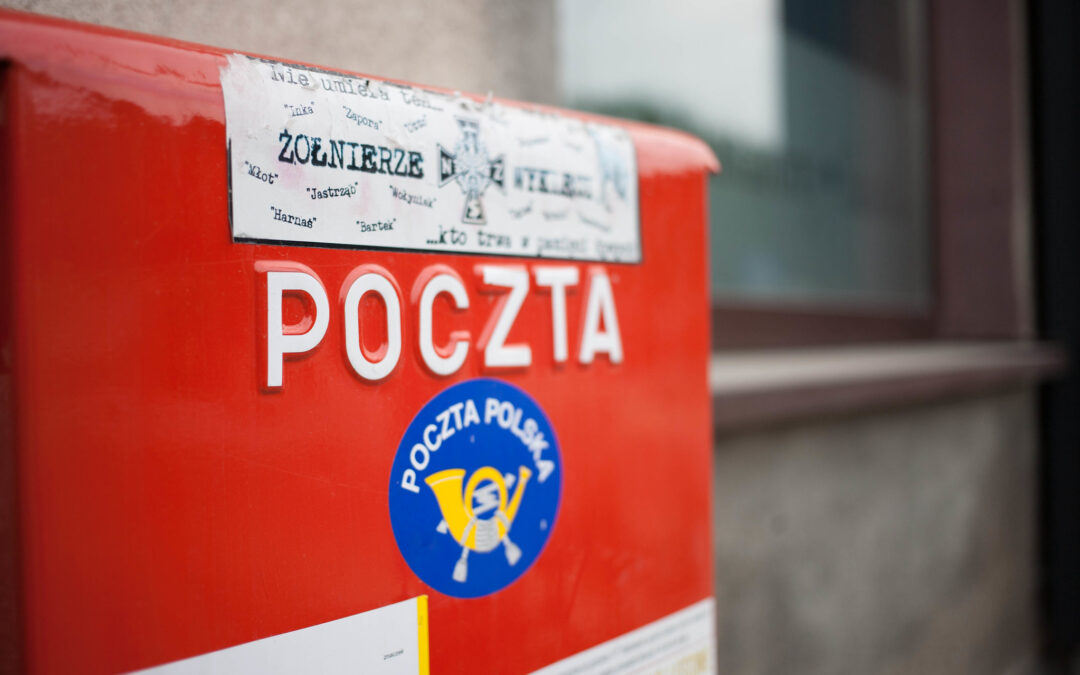Poland is introducing a new online communication system to serve as a single point of contact between state institutions – such as tax offices, schools, local government or courts – and citizens, with the aim of phasing out all paper correspondence.
The so-called e-delivery (e-doręczenie) scheme – which was initially due to launch in July but is now likely to be postponed until October – will be operated by Poland’s state postal service, Poczta Polska.
When registration opens, people who add their email addresses to a database will begin to receive email-only correspondence from institutions that gradually join the scheme. Such deliveries will be legally equivalent to a paper letter received by recorded delivery.
Where people are unwilling or unable to register in the system, the institutional email will be printed out by the postal service and delivered as a signed-for paper letter.
The first institutions to join the scheme will be government ministries, followed by other state agencies such as the Social Insurance Institution (ZUS) and National Health Fund (ZUS).
Notaries, attorneys, and legal and tax advisers will also be required to have such mailboxes. The requirement will later be extended to new businesses as well as those currently listed in the National Court Register (KRS), and then to local government officials. Courts, prosecutors and bailiffs will be given until October 2029 to join.
The new system will be operated by Poczta Polska until at least 2025. According to Gazeta Wyborcza, the service provider will charge the state a fee of up to 3.75 zloty (€0.83) plus VAT for each delivery – despite private providers offering much lower fees.
The newspaper reports that another option that had been considered was modernising Poland’s existing online platform, ePUAP, which already allows some state agencies, such as the tax administration, to communicate with citizens for free.
Former digital affairs minister Anna Streżyńska had also reportedly proposed that telecoms firms and banks might be in a better position to offer the service.
The choice of Poczta Polska, however, is seen as a way of financially bolstering a state enterprise that has seen its income drop as Poles send fewer items by traditional mail, reports Gazeta Wyborcza.
The state budget has earmarked almost 136 million zloty (€30 million) for the service in its first year of operation, rising to 533 million zloty (€117 million) in subsequent years. After 2025, the system’s operator will be selected through a competition.
In recent years, the government has pushed to digitalise a number of state services. According to official data published in May, 20 million tax declarations were submitted online (of which half used the e-PIT desktop application) in 2021.
The government has also created mobile ID and driving licence applications – mObywatel and mPrawoJazdy – which have been downloaded 2.6 million and 1.3 million times respectively.
While registration for the mailbox scheme was meant to begin on 1 July, this week the lower house of parliament voted through an amendment delaying the start until 5 October. The bill, which was supported by PiS, will now be considered by the Senate.
Main image credit: Roland Tanglao/Flickr (under CC BY 2.0)

Maria Wilczek is deputy editor of Notes from Poland. She is a regular writer for The Times, The Economist and Al Jazeera English, and has also featured in Foreign Policy, Politico Europe, The Spectator and Gazeta Wyborcza.



















